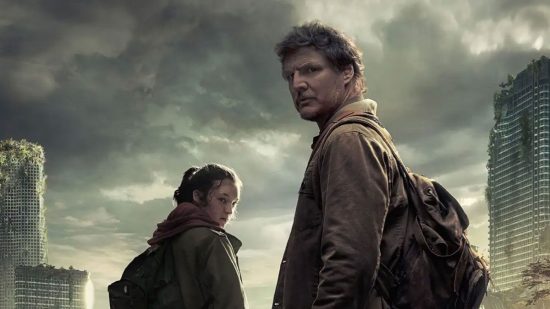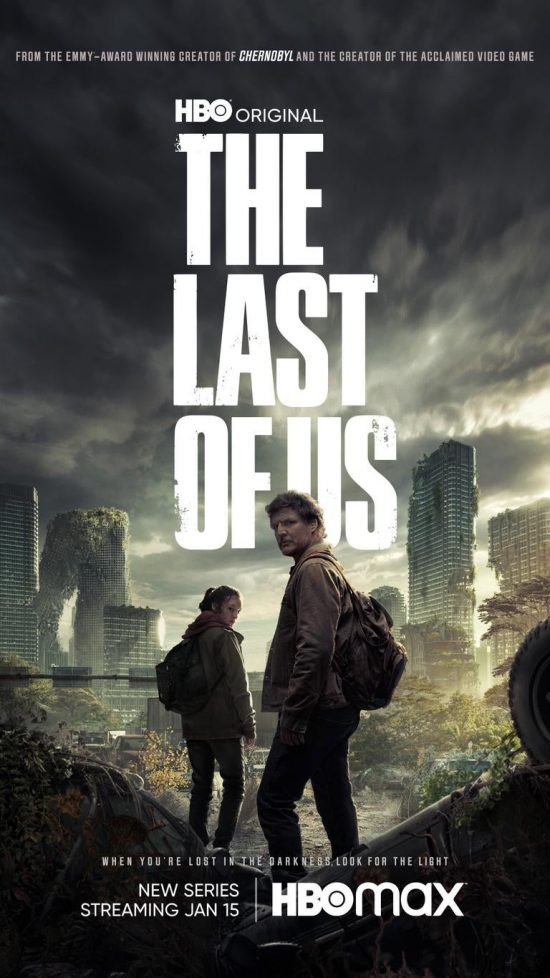Five things I want from The Last of Us TV Show
With the first episode of a new HBO series almost here, I am experiencing a new feeling. It’s a not unpleasant mixture of trepidation and excitement. I have played through the entirety of The Last Of Us (TLOU) video game six times on three different consoles. It’s fair to call me a Superfan. Like many Playstation gamers of 2013, TLOU took hold of my soul. More story-driven than most other games, TLOU seamlessly connects players to protagonists Joel and Ellie through puzzle solving, combat and conversation. I felt able to shape their destiny. In real-time I had the power to ease their fears, give them joy and try to reduce their pain. The strong bond I have with this game and its characters has never been broken.
TLOU was always ripe for adaptation. Developer Naughty Dog viewed the game through a filmic lens, expanding the story with mini-movie cut scenes and enhancing the tragedy with a haunting score. But television can do things that games can’t. TLOU is not an open-world game, and it follows only one path, even if it felt like Joel and Ellie had real choices. With more space for storytelling, the show can expand the world with richer, satisfying detail. Here are five ways that the show could add to the game’s legacy.
1. What made Joel, Joel?
TLOU’s Prologue portrays the events at Ground Zero of a new zombie apocalypse where humans were infected by a cordyceps (fungal) virus. Joel Miller, a sweet, working class single dad had one goal: protecting teen daughter Sarah and brother Tommy from infection. The game then mercilessly cut to 20 years later. Joel is not the same man he used to be. Now a smuggler living under military rule, Joel is hardened, guarded. The game never investigated Joel’s past, and this omission gives the show a large canvas to draw on. I’d like to know how Joel lived during these times. What was the argument that caused the estrangement from Tommy? How did he get into illegal gun-running? How did he grieve? The Joel who meets Ellie is reluctant to form meaningful relationships. The show can rip my heart in two by showing flashbacks of exactly how he came to be that way.
2. Dialogue and Dynamic
One of the secrets of TLOU’s success was its constant forward momentum. It is essentially a journey story. Two strangers, forced into forming an alliance, are tested by obstacles along the way. Yet the game excels by also exploring the quieter moments between those obstacles. Ellie was the driver of these exchanges. She is a fascinating character study as she was born after the events of the Prologue. Ellie only knows the world as a shadow of its former self and is dying to learn its recent history. Joel, avoiding the need to relive trauma, tries to avoid her searching questions in the game. As optional game interactions, Ellie can ask questions, collect comic issues and stop to read from an old joke book. But it’s possible to play through the game and never catch Joel’s wistful remembrance of coffee shops, or Ellie’s consternation at a yellowing movie poster. To truly capture the essence of this friendship, I want the show to lean into these reflections. As dialogue is the bread-and-butter of episodic TV, I hope for more world-building conversation.
3. Finally, a playable NPC
Players spend most of TLOU playing as Joel, with occasional segues as Ellie (which was a revelation when the switch happened). But the game is full of important characters who drop in and out of the story. The show has room not only to dig into their backstories but also to realise how they fare after meeting Ellie and Joel. One of my favourite NPCs from the game is Bill, a grumpy old git who has booby-trapped the town he now calls home. Through reading various hidden documents we learn that Bill’s partner Frank died and he still keenly feels the loss. It’s an intrusive way to learn about a character who wishes for privacy. The show can show us Bill’s life and fill in the gaps in a layered way, plus I’ve heard there will be a character called Frank. I’d also like to know more about Marlene, the leader of the anti-government Fireflies movement. The TLOU wiki calls Marlene a villain, when the truth of her motivations is likely to be a lot more complicated. The show has the ability to rehabilitate and explore many characters, as well as introduce completely new ones.
4. Why does the Clicker click?
TLOU was genuinely scary. The game did a great job at showing how precarious life is, when characters could (and frequently were) bitten and devoured by the Infected. The game also never fully explains why the virus turned people into arm-flailing gruesome screamers. TV shows love to eke out a mystery to get audiences excited and raise the stakes but the showrunners will want to distance themselves from The Walking Dead, a show whose message is that the real problem is the living. Rather than focus only on human-versus-human conflict, I hope that the show takes time to explain what is happening to infected individuals and investigates how they live and think (or, if they think). TLOU had a number of enemy types, like the disgusting Bloaters, who have succumbed to the virus for the longest period. They have somehow also developed the ability to use echolocation. I hope that the show looks beyond their gross exterior and maybe explores biological or even sci-fi concepts explaining their existence.
5. Don’t be too TLOU2
One of the reasons why I preferred playing TLOU to the game’s sequel, TLOU2, is that although the first game shows a dark, post-apocalyptic world, it sets the Infected as primary antagonists. There are good and bad people, but in general, it was easier for players to agree on who had the moral high ground. TLOU2 purposefully threw this concept of universal morality out of the window, a little bit like later seasons of the show LOST. TLOU2 forced players to take a hard look at Ellie and Joel’s actions and introduced new elements that threw our relationship with them into disarray. I did not care for this, and explored this further here, although I recognise this made for a huge surprise. I would prefer if this show doesn’t require viewers to make difficult moral judgments so early in the story. Ultimately, this season of the show should focus on exploring a blossoming bond between two flawed yet compelling individuals, as well as what it means to be a teenager and a father in this ravaged world. I do think the show should lay the groundwork for conversations about challenging authority and survivor ethics, but I’d prefer it to expand on issues of sexuality, gender and violence, where TLOU2 excelled. I hope Ellie and Joel find some happiness in this season, because if the show follows game storytelling it’s going to be a bumpy ride.
So far, the rumours are that The Last of Us show is going to finally put gaming adaptations in contention as premier drama. Of course, TLOU gamers knew this already.











